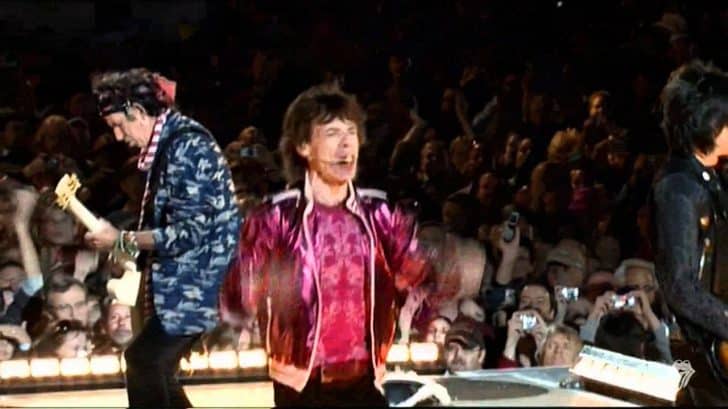The essence of rock and roll lies in its rebellion against oppressive systems, and this sentiment is epitomized in one of the Rolling Stones’ timeless songs, “Get Off of My Cloud.” Co-written by lead singer Mick Jagger and guitarist Keith Richards, the track served as the follow-up single to their massively successful hit, “(I Can’t Get No) Satisfaction.” The impact of their earlier success directly influenced the meaning behind this iconic song.
The Story Behind “Get Off of My Cloud”
Released in September 1965, a mere three months after the breakthrough hit “Satisfaction,” “Get Off of My Cloud” propelled The Rolling Stones from a popular English rock band to bona fide superstars. It quickly soared to No. 1 on the Billboard Hot 100 in the same year, solidifying their position in the music industry. However, the genesis of “Get Off of My Cloud” can be attributed to the pressure the band faced to deliver another monumental hit.
According to Keith Richards, “‘Get Off of My Cloud’ was basically a response to people knocking on our door asking us for the follow-up to ‘Satisfaction.'” In his 2003 book, “According to the Rolling Stones,” Richards explained how the band hoped to have a moment to reflect on their success but were constantly reminded of the high expectations thrust upon them. The result was the creation of “Get Off of My Cloud.”
A Commentary on American Culture
While the song reflected their refusal to succumb to the pressure of replicating their previous success, it also served as a commentary on American culture. Having garnered a substantial following in their native London, England, “Satisfaction” propelled The Rolling Stones to international fame. In a 1995 interview with Rolling Stone, Mick Jagger revealed that “Get Off of My Cloud” was crafted as a counterpoint to the order and structure they observed across the United States.
Jagger described it as “a stop-bugging-me, post-teenage-alienation song,” reflecting his disillusionment with the highly organized society prevalent in the early ’60s. America, in particular, stood out as a society with even more stringent social constraints. Jagger found the country to be restrictive in thought, behavior, and dress. While he appreciated cities like New York as “wonderful” and Los Angeles as “interesting” during their tours, the overall experience of America in 1964, amidst the Civil Rights Movement, left Jagger feeling oppressed.
“It was the most repressive society, very prejudiced in every way,” Jagger expressed. “There was still segregation. And the attitudes were fantastically old-fashioned. Americans shocked me by their behavior and their narrow-mindedness.”
The Success of “Get Off of My Cloud”
Following in the footsteps of its predecessor, “Get Off of My Cloud” enjoyed tremendous success. It claimed the No. 1 spot on the Billboard Hot 100 for two weeks and topped the UK Singles chart for three weeks. Despite becoming another signature hit for the band, Keith Richards had a change of heart about the song in 1971.
Richards admitted, “I never dug it as a record. The chorus was a nice idea, but we rushed it as the follow-up.” Being in Los Angeles at the time, it was inevitable for them to release another single. However, Richards had envisioned a slower approach reminiscent of a Lee Dorsey style, only to have it transformed into a more rock-oriented sound.

